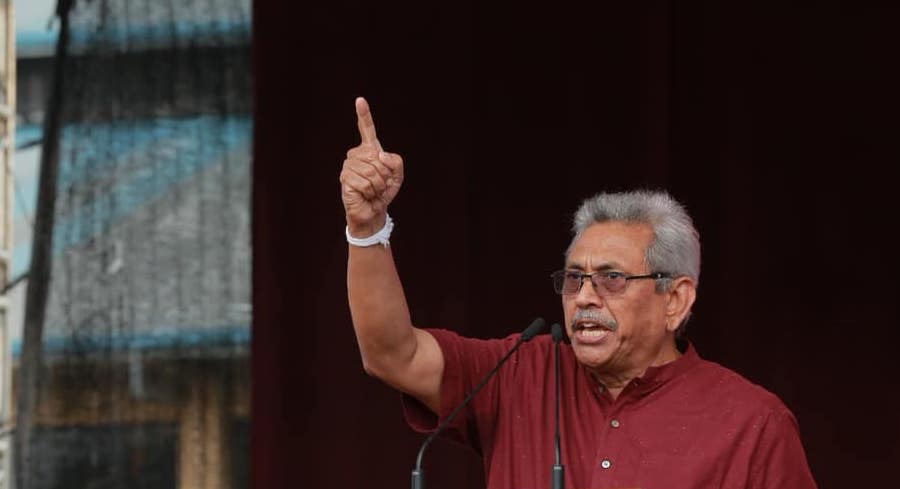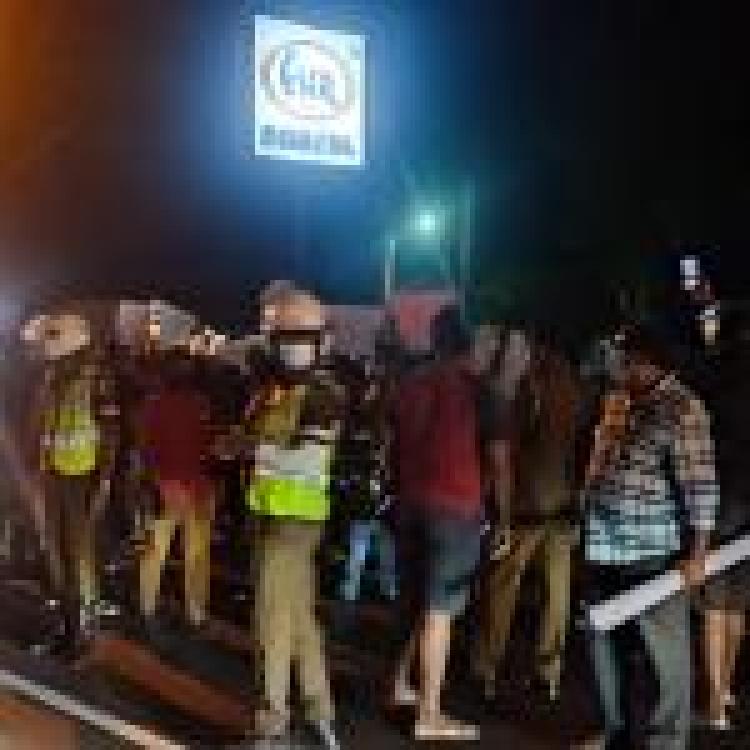
Sri Lanka’s president Gotabaya Rajapaksa has characterized protests that took place in response to the ongoing economic crisis as “extremist”, whilst another government minister claimed that “terrorists” were behind the demonstration.
The government went on to state that the “majority of the perpetrators” have been detained, with at least 45 arrests reported so far.
On Thursday evening over 5,000 demonstrators began to gather near Rajapaksa’s residence to protest the state’s role in facilitating an economic crisis that has left civilians without access to basic resources such as medicine and fuel. The protests which initially began as peaceful demonstrations turned violent when Sri Lankan police escalated the situation by using tear gas and water cannons on civilians.
Those who have been arrested will reportedly be detained under the Prevention of Terrorism Act (PTA).
In response to this backlash, Rajapaksa has claimed that the protests were the product of extremism, dismissing the grievances that demonstrators had.
Sri Lanka’s Minister of Transportation Dilum Amunugama meanwhile told reporters at a press conference that “terrorists” were responsible for the disruption yesterday.
The Sri Lankan government has routinely used the language of terrorism to derail and delegitimize civil disobedience for decades. Labels like ‘extremist’ and ‘terrorist’ have regularly been applied to the island’s Tamil and Muslim populations.
The language of terrorism has been used to foster an environment that justifies legislation like the PTA, which has come under increasing international scrutiny in recent months. These laws are mechanisms that allow the state to violate civil rights in the name of state security. For Tamils on the island, this has resulted in a life surveilled by Sri Lankan authorities. Tamil civilians have historically been subject to illegal detention and have had their rights to peaceful assembly infringed upon. All of these abuses have been justified by the state as necessary for the preservation of national security.
Tamil activists have long expressed the dangers of the PTA for the ways that it empowers the state to violate basic civil liberties.

